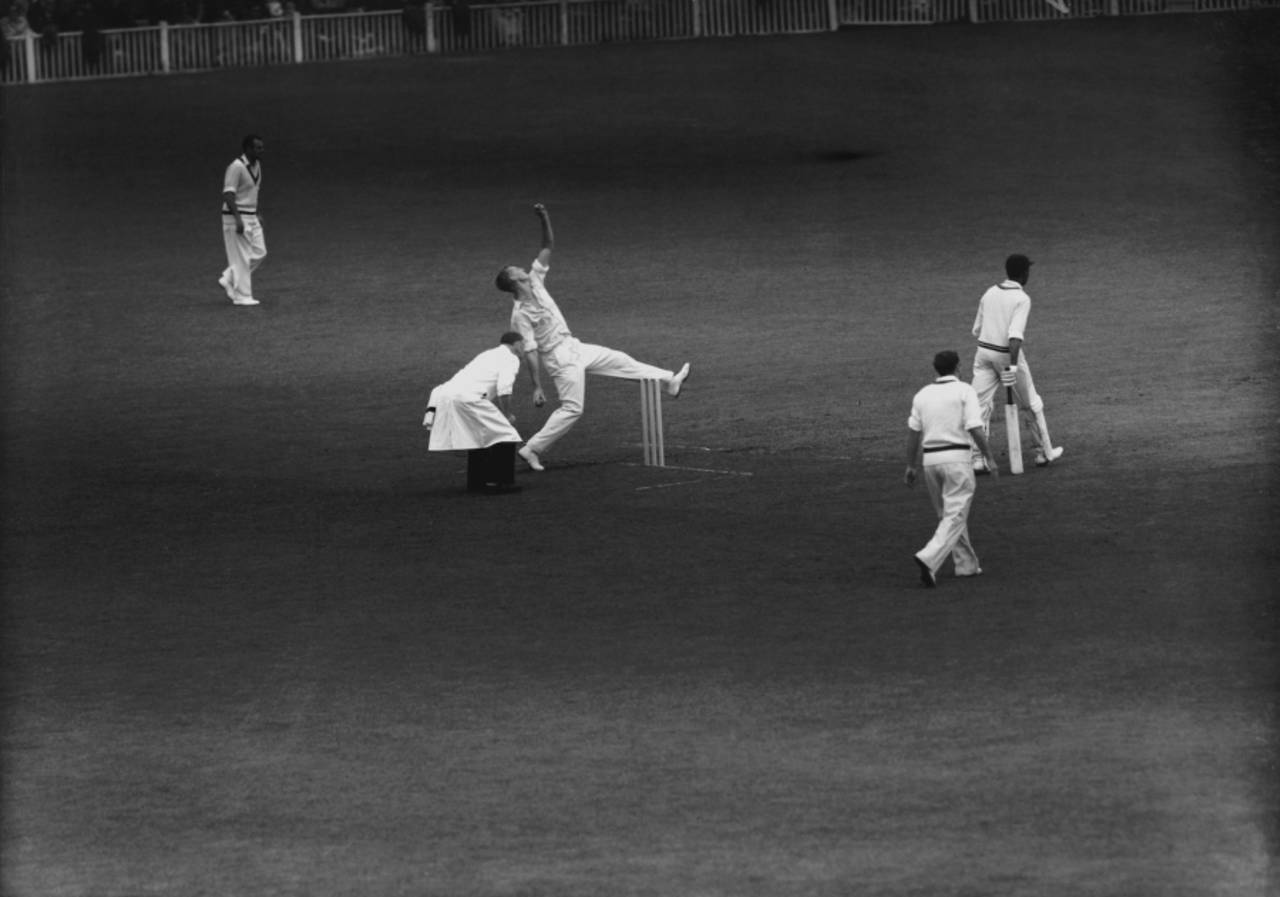Would the modern player switch places with a counterpart from the past?
Packed schedules, bio-bubbles, pandemic uncertainty, but a lot more cricket and substantially better rewards - do current players have it better or worse?
Ian Chappell
23-May-2021

Australia bowler Frank Misson, who kept his training going even aboard a ship, was ahead of his time in work ethic • Getty Images
The modern cricketer is substantially better rewarded than players of the previous century. However, like with all such things in life, there is a downside involved. This comes in the form of the numerous adjustments to be made because of the extra formats that are now played and the resultant crowding of the schedule.
As if that wasn't a big enough challenge, there are now the vagaries of the pandemic. There's no better example than the chaos created by the postponement of the opulent IPL, resulting in a last-minute appeal to the ECB to rejig India's tour dates in England to accommodate the completion of the tournament.
Whoever said life wasn't meant to be easy perfectly summed up the career of the modern international cricketer.
The Covid-ravaged world has meant cricketers spend extended periods in bubbles, which challenges their skills and their mental health. It has also resulted in scheduling that has Test matches crammed together, which is physically and mentally demanding, especially for the fast bowlers.
While the 20th-century cricketer had the occasional back-to-back Test over the Boxing Day-New Year period, now it's more likely the schedule will include back-to-back-to-back Test matches than not, which is a real grind for all concerned.
This was highlighted in the last Australia-India series, where the home side used the same fast-bowling trio in all four Tests. As the Australian pace bowlers wore down in the final stages of the series, their Indian counterparts may have caught a break as injuries meant they had to constantly change personnel.
India is one of the few teams who have enough skilled quick bowlers in reserve to meet the challenges of the schedule and still remain competitive.
Modern fast bowlers do a lot of varied training in order to prepare for the demands of constant cricket, but still the injuries continue to pile up. Fast bowlers in the past concentrated more on running and bowling a lot in the nets to gain their match fitness.
Australian fast bowler Frank Misson, who toured England in 1961, was one who believed in running to build up stamina. The 1961 Australian team travelled to England by boat, but Misson was not to be denied his training regime. As he ran laps of the deck, some of the less physically minded players sitting in the bar saw Misson flash past the window. Perhaps embarrassed by Misson's zealous workouts, they decided to complicate his exercise regime by placing deck chairs in his path. When Misson hurdled the first set of obstacles and did the same to yet another layer of chairs, the bar rats relented and left him to train in peace.
The preparation a player goes through today in the build-up to a Test is extensive when compared to the past. Teams now arrive at a venue anywhere up to four days prior to the game, which is a far cry from what happened in 1921, when England were in disarray following their country's involvement in a brutal war. The selections ranged from the haphazard to the bizarre, with ten England players who appeared in that series only being involved in a solitary Ashes Test.
Lord Tennyson's build-up to the Lord's Test was extraordinary by any measure. Relaxing at his club in London at 1 o'clock on the morning of the game, smoking a cigar and imbibing, Tennyson received a phone call requesting him to report to Lord's later that day to take part in the match. Not surprisingly he failed in the first innings - like the bulk of his team-mates, though he atoned in the second innings by remaining 74 not out.
It would be interesting to discover if retired cricketers envied the rewards paid their modern counterparts or whether current players would swap today's whirling merry-go-round for the casual approach of the past. I suspect most international cricketers are just happy to have played.
Former Australia captain Ian Chappell is a columnist
